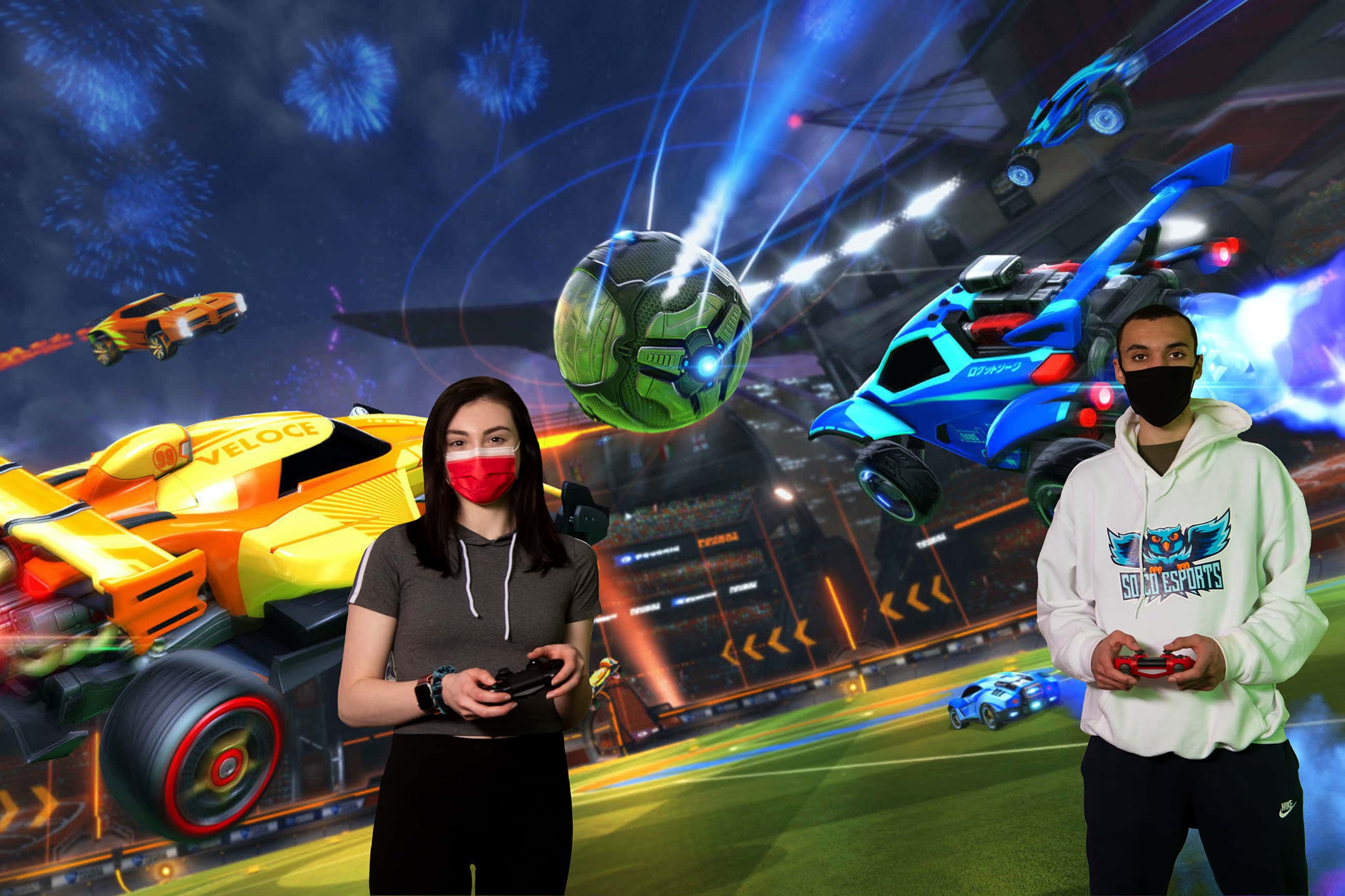Miles Bagoly, ‘22, and his friend Brian Harner, ‘22, were merely looking for other students who were interested in playing collegiate Rocket League — “the high-powered hybrid of arcade-style soccer and vehicular mayhem” — when they founded the Esports Club at Southern in fall 2019.
“What we found was something much larger and exciting,” Bagoly says. “At the club fair in fall 2020, the kickoff for our official start, we received an overwhelming response of interest. Within the first hour of the fair, 40 students signed up.
To garner further interest, Bagoly and Harner scheduled competitive gaming in Engleman Hall. “We have held over 20 on-campus competitions and I personally organized an inter-collegiate competition with other Connecticut colleges,” Bagoly says. “My main goal for the club is for us to become a recognized sport akin to the traditional sports like football or basketball and to become a formidable presence in the collegiate esports community.”
Esports, or live video game competitions, isn’t anything new, but it’s definitely become part of the fabric of American higher education and is growing in popularity and revenue potential.
According to Inside Higher Ed, esports — not just within colleges — are expected to be valued at $1.4 billion this year. Pro gamers can draw big money. For reference, popular esports athlete Lee Sang-hyeok (aka Faker) earned approximately $1,228,000 dollars in 2020. There are plenty of viewers, too. Riot Games League of Legends 2020 World Championships Final, held in Shanghai’s SAIC Motor Pudong Arena, set a new record of close to 45.9 million online viewers at its peak, making it among the most-watched sporting events in the world.
“Esports is kind of like the new frontier of gaming online,” explains Recreation and Fitness Coordinator Andrew Marullo. “It’s popping up all over the country, and students are playing from elementary school through college. At Southern, we decided it’s time to elevate it to another level.”
For the first time, the newly formed Esports Club at Southern will compete in the Eastern College Athletic Conference. The ECAC is an 80-year old organization with more than 200 member schools across NCAA Divisions I, II and III. In 2021, Southern’s Esports Club will battle it out against more than 20 teams, over seven weeks, in titles like Overwatch, Hearthstone, Rocket League, Madden 21, FIFA 21, NBA 2k21, Fortnite, and Super Smash Bros Ultimate. The winner will advance to the 32-school College Championship bracket, then the College League of Legends will conclude with an 8-school final College Championship event.
More than 300 teams and 2,000 competitors competed in ECAC’s Esports fall 2020 competition; broadcast nightly on ESTV, the competition drew more than 100,000 views weekly.
Bagoly, a biotechnology major and club president, says esports has been big for many years and “definitely has seen a large jump in both participation and viewability.
“Competitive gaming at Southern wasn’t around when I first arrived, even though there were gaming systems in all the dorms,” he says. “So for Southern, it is one of the newest things offered and I can see it growing each year into something quite amazing.”
As with other clubs, students can find the Esports Club on Owl Connect. The club is student-run; initially it will have advisors and possibly a coach. Although it’s in its infancy, there’s an eye toward growth, even academically.
“There are employment opportunities in this field, so there are possible partnerships to grow this academically,” Marullo says.
Southern currently offers a newly launched minor in esports management, which focuses on the business side of the industry, but James MacGregor, associate professor and chair of the Department of Recreation, Tourism & Sport Management, says an academic major isn’t far away.
“The advancement of the Esports Club gives students practical experience in the minor, and marketing, promoting teams, setting up events, and events logistics,” MacGregor says. “Beyond that, there’s tremendous opportunity to build the program in an interdisciplinary way. There’s overlap with business and psychology and computer science, just to name a few.”
Long-term, Southern may even have an esport facility, Marullo says: “It’s an opportunity for different students to get involved. There’s a huge female population who game. The best part is that you get a huge range of students. It really brings all majors together — all people together.”
Adds Bagoly, “We found that esports is universal and that gaming reaches across all genders. All have shown an interest in joining the esports club and all are welcome to become a part of our family.”
If current trends are any indication of the club’s and program’s potential, the family may very well pack an arena of its own.


